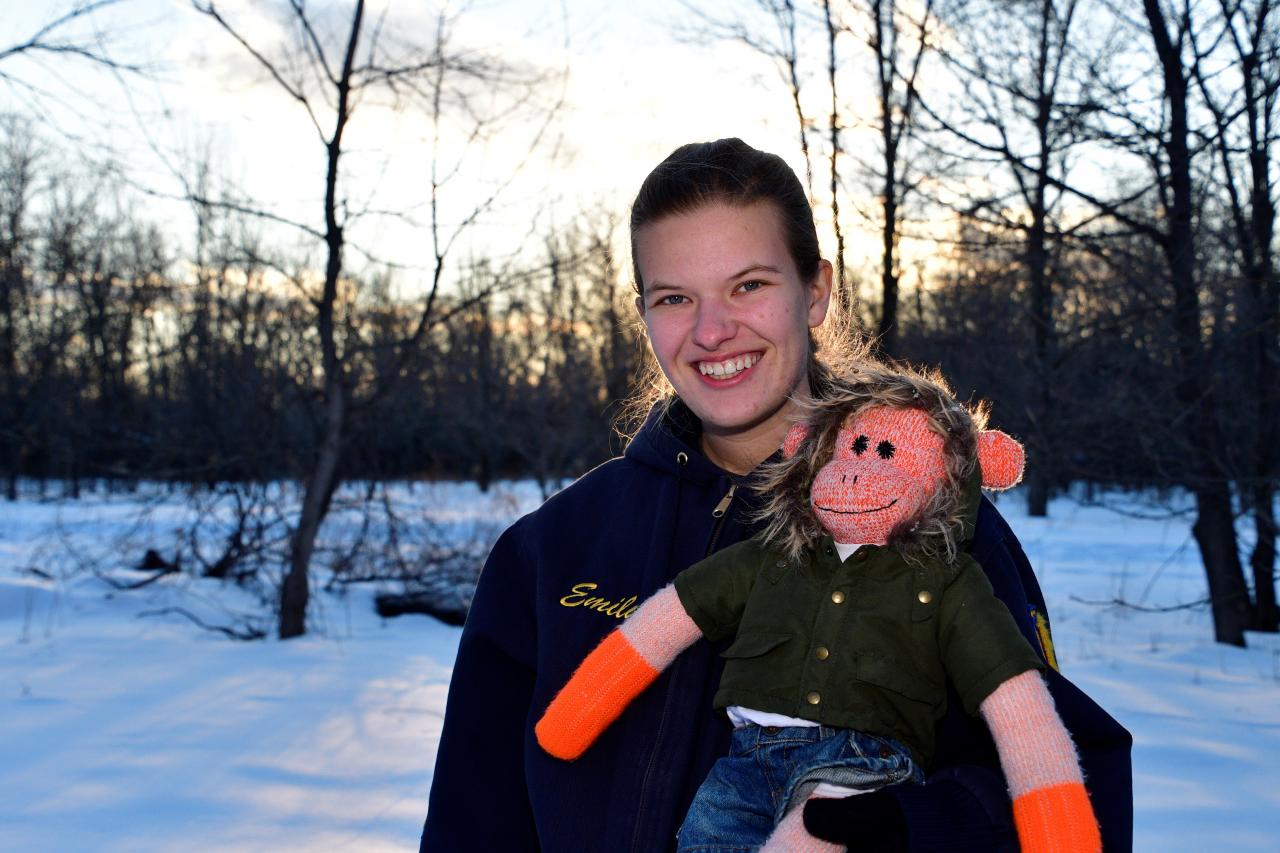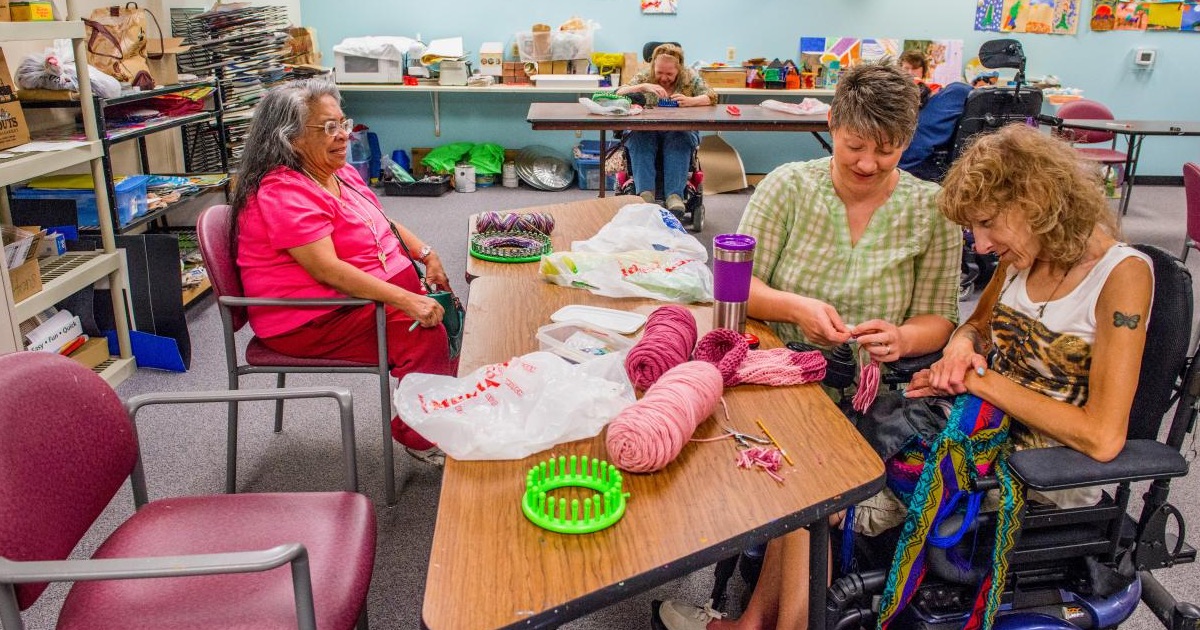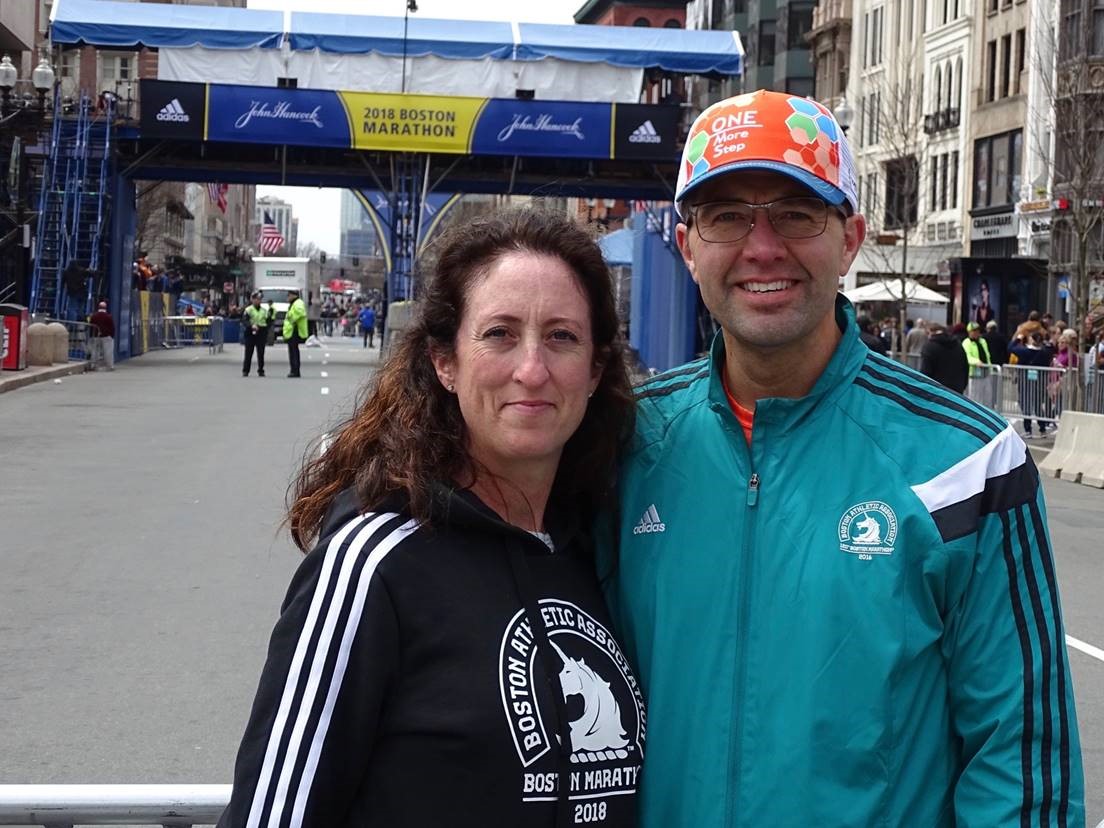
Can Do Multiple Sclerosis (Can Do MS) transforms lives by delivering health and wellness education programs on exercise, nutrition, symptom management and motivation to help families with MS thrive. The organization’s founder, Olympic ski medalist Jimmie Heuga – who was diagnosed with MS at the age of 26 – encouraged people to focus on what they “can do” to live healthy and well, whether or not they have MS.
Today, Can Do MS programs consultant coordinator, physical therapist and MS certified specialist Mandy Rohrig says, “Jimmie fully embraced the ‘Can Do’ mantra, which can help anyone who is trying to overcome a challenge.” We sat down with Mandy, who was kind enough to share how taking a “Can Do” approach can help people with MS live their best life.
EmpowHER: What does it mean to take a “Can Do” approach?
Mandy: People with MS and their loved ones are constantly forced to adapt to change. MS is unpredictable and, at times, filled with uncertainty. It is a disease that every day, every hour and every minute presents people with challenges that impact their physical, social and emotional functions. Can Do MS teaches people to approach these challenges and changes as opportunities for creative problem-solving. A “Can Do” approach means believing in yourself and your abilities, even as they may evolve because of MS.
EmpowHER: How does Can Do MS help people overcome challenges presented by MS?
Mandy: Can Do MS helps people living with MS and their support partners to optimize their health and wellness so they can continue to enjoy a full and happy life. We provide programming and resources to support multiple dimensions of wellness, including diet, exercise, emotional well-being, work/life balance, spirituality, relationships and cognitive well-being.
Can Do MS believes it’s important to take a team approach to achieving optimal wellness. For someone with MS, the health care team may include a neurologist, an MS nurse, a primary care physician, a psychologist, a physical therapist, an occupational therapist, a speech therapist and a dietician – all working together for the person with MS and their support partner.
EmpowHER: You mentioned the team works with support partners as well. Tell us more.
Mandy: We believe that support partners are also living with MS and it’s important to support them on their MS journey. A recent survey called the MS MindSet Survey found that support partners are often just as affected by the unpredictability of MS symptoms as the person with MS. For example, 87 percent of support partners and 85 percent of people with MS who were surveyed said they miss daily activities because of the unpredictable nature of MS.
EmpowHER: What strategies do you employ to help people cope with the unpredictability of MS?
Mandy: When the unpredictability of MS creates unique challenges, often you need equally unique options to help during these difficult times. While Can Do MS offers tremendous resources from a variety of platforms, including online and in-person programs, people living with MS may need additional help with everyday challenges and tasks.
I encourage people to find the resources in their community that can help them live better with MS. One new and valuable resource is GatherMS.com, a website that aggregates many types of existing resources that can be helpful to people with MS and their support partners – everything from support offered by organizations like Can Do MS to services that can help with everyday chores.
EmpowHER: You have been working for Can Do MS for 11 years. Tell us more about your role.
Mandy: I am part of the team that provides holistic support to patients and support partners through Can Do MS programs. As a physical therapist, I am privileged to help people with MS and their loved ones navigate mobility changes and challenges. One of the common issues I help people work through is reduced walking endurance because of MS-related fatigue. I recently worked with a young mother whose mobility challenges were impeding her ability to attend her child’s soccer games. Together, in the spirit of Can Do MS, we found a solution that involved using a scooter to navigate the trip from the car to the field so that she could be on the sidelines cheering on her son.
I’ve found it’s difficult for many people to make the transition from walking without assistance to using an aid, such as a scooter. I encourage people to shift their mindset from thinking negatively about the scooter, to thinking about it as a positive tool that helps them continue to do what they want.
EmpowHER: What other strategies do you recommend to help people embrace the “Can Do” spirit?
Mandy: I encourage people to set goals for themselves and to make sure that these goals follow the “SMART” format, which means they are Specific, Measurable, Achievable, Realistic and Timely. An example of a SMART goal involving exercise adherence would be: I will ride a stationary bike for 20 minutes, three days a week for two months. A similar goal that would not be considered “SMART” would be: I will exercise on a stationary bike. You can see how incorporating specificity adds a layer of accountability to help people be successful and achieve their goals.
EmpowHER: What do you want people to take away from the “Can Do” approach?
Mandy: Can Do MS wants people to know there are communities of support available, and it’s possible to live well with MS by taking a “Can Do” approach to achieving their hopes and dreams.
Sponsored by: Genentech
Read more in Living with Multiple Sclerosis


.png)
